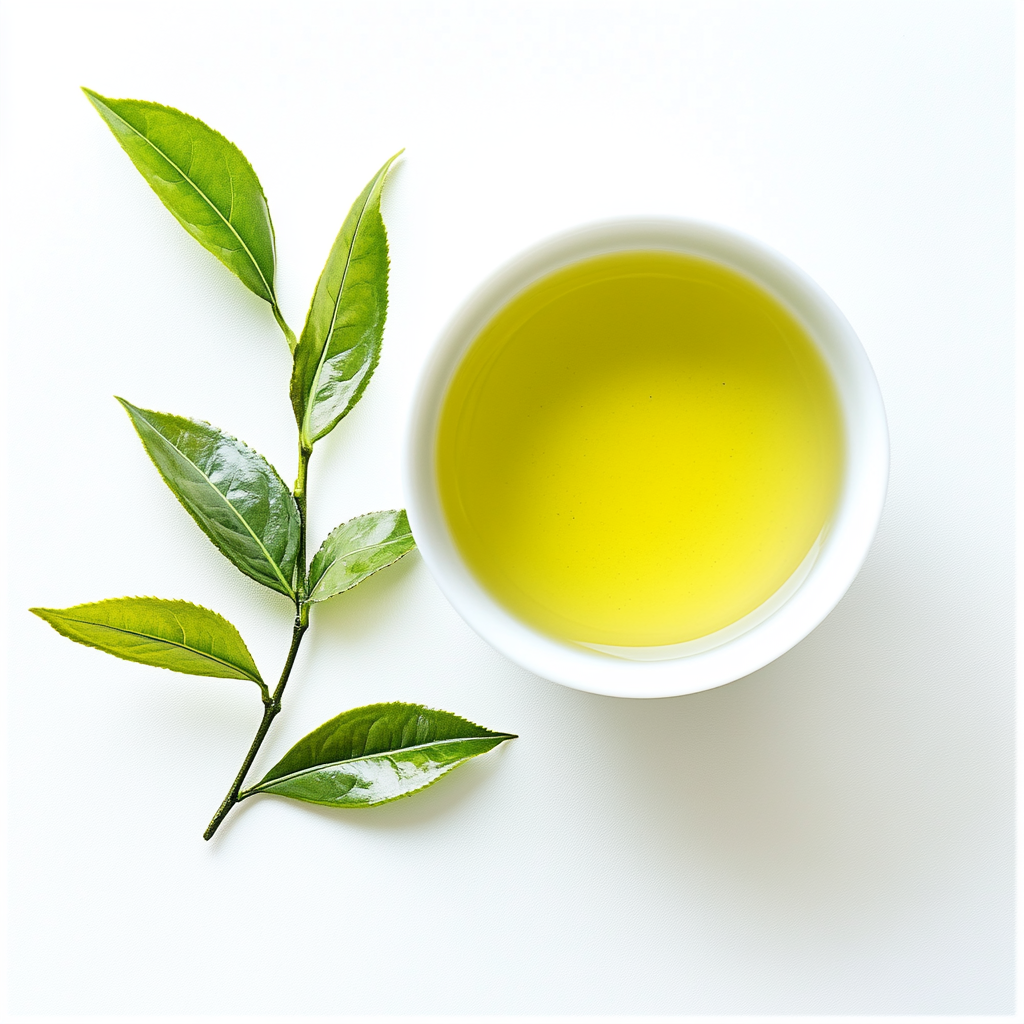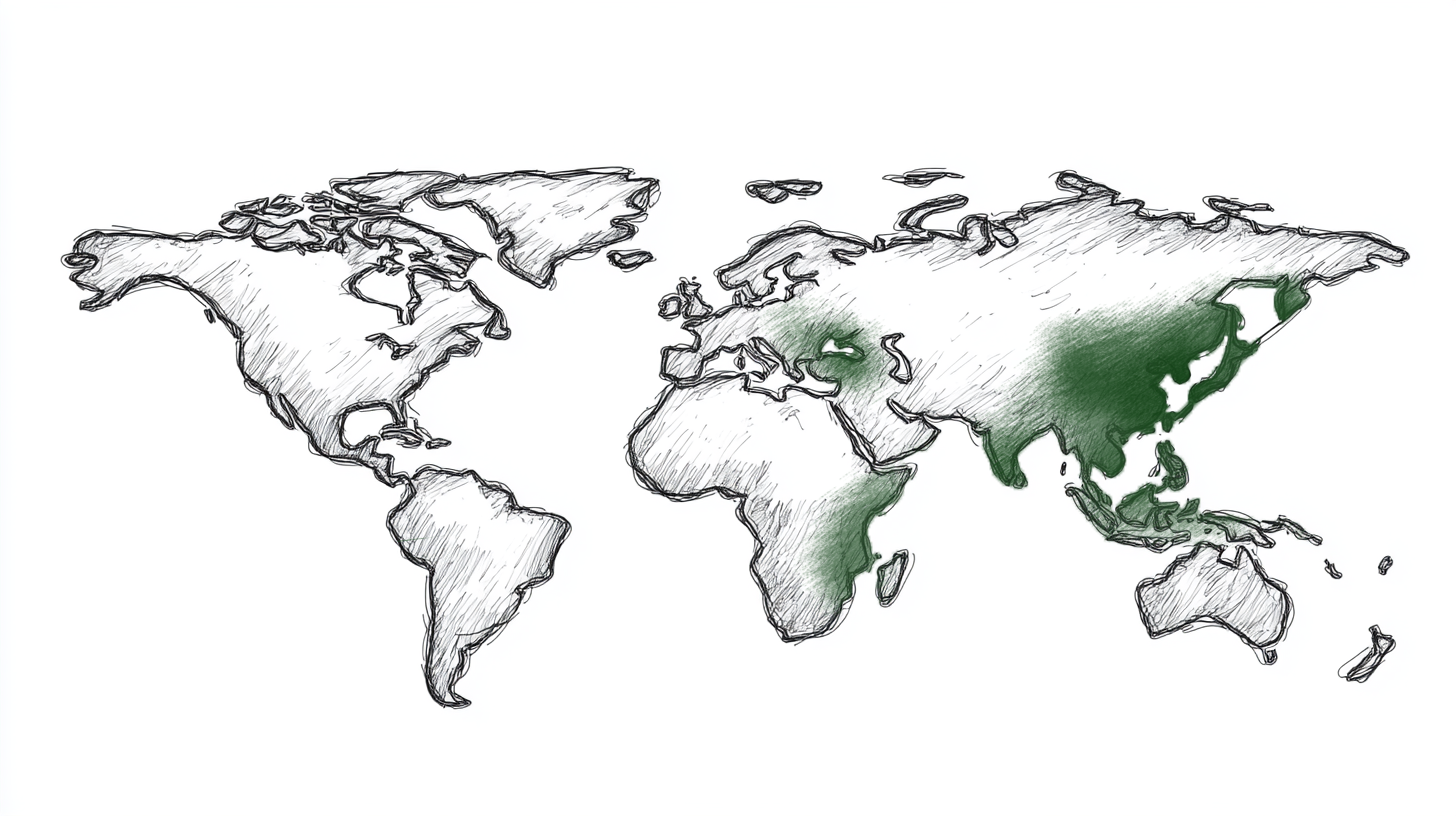

Green Tea
Camellia sinensis


Green Tea originates from the lush mountainous regions of China, where it has been cultivated and cherished for over 4,000 years. It later spread across East Asia, becoming deeply rooted in Japanese, Korean, and Vietnamese cultures, where unique processing techniques developed regional tea traditions. Today, China and Japan remain the world’s leading producers, with additional cultivation in India (notably Assam and Darjeeling), Sri Lanka, and parts of Africa. Thriving in subtropical and temperate climates, the tea plant prefers rich, well-drained soils, high humidity, and misty hillsides that protect the delicate leaves. Revered not only as a daily beverage but also as a medicinal herb, Green Tea holds a central place in wellness, beauty, and cultural rituals worldwide.
Benefits of Green Tea
Aromatherapy: Though not traditionally used as an essential oil, Green Tea extract and its delicate aroma are valued in aromatherapy-inspired practices for their calming yet gently uplifting effect. Its fresh, grassy fragrance fosters mental clarity, reduces stress, and refreshes the senses. Often blended into mists, compresses, and spa treatments, Green Tea creates a serene atmosphere, balancing relaxation with alertness — ideal for meditation, focus, or unwinding after stress.
Skincare: Green Tea is celebrated as a powerhouse antioxidant, particularly rich in catechins such as EGCG (epigallocatechin gallate), which help neutralize free radicals and protect the skin from premature aging. It soothes irritation, reduces redness, and calms conditions such as acne and rosacea thanks to its anti-inflammatory and antimicrobial properties. Its astringent qualities tighten pores and balance sebum production, leaving skin fresh and toned. Green Tea extracts also provide UV protection, supporting the skin’s defense against sun damage while enhancing elasticity, smoothness, and radiance.
Haircare: For hair and scalp, Green Tea provides strengthening and protective benefits. Its catechins help reduce dihydrotestosterone (DHT), a hormone linked to hair loss, thereby supporting hair retention and growth. Its antioxidant and anti-inflammatory properties create a healthier scalp environment, reducing dandruff, irritation, and dryness. Green Tea also stimulates circulation in the scalp, enhancing nutrient delivery to follicles, resulting in stronger, shinier, and more resilient hair.*
*Kwon, S. H., Pimentel, D. R., Remondino, A., Sawyer, D. B., & Colucci, W. S. (2016). EGCG protects against DHT-induced human dermal papilla cell damage through modulating miRNA expression. Evidence-Based Complementary and Alternative Medicine, 2016, Article 5727342.
Possible Contraindications
Internal use: Excessive consumption may cause insomnia, restlessness, or palpitations due to caffeine content. Can interfere with iron absorption if consumed in large amounts with meals. May interact with anticoagulants, stimulants, or blood pressure medications.
Topical use: Generally safe, but concentrated extracts may irritate highly sensitive skin — patch testing is recommended.
No collection assigned to this herb.

